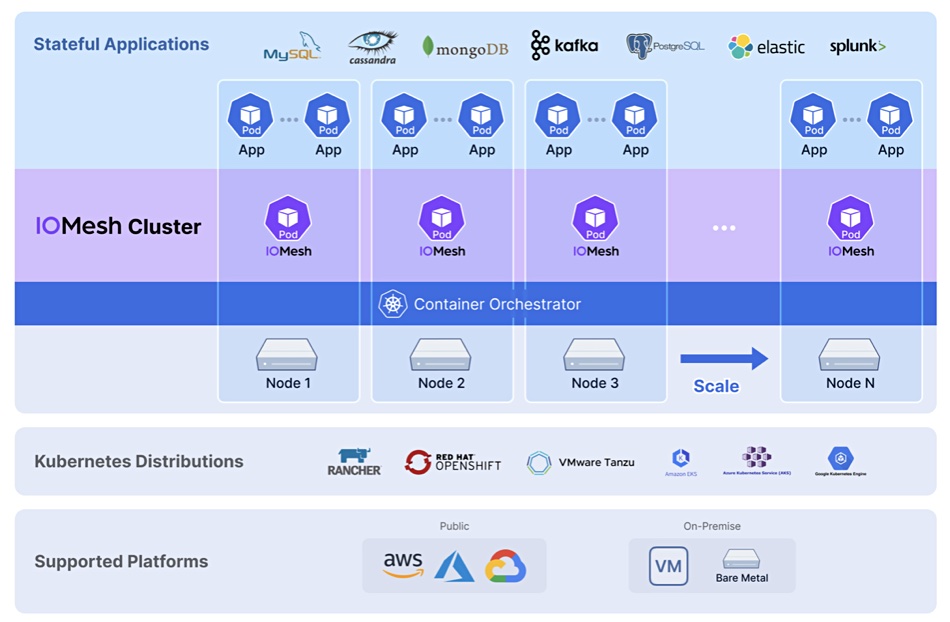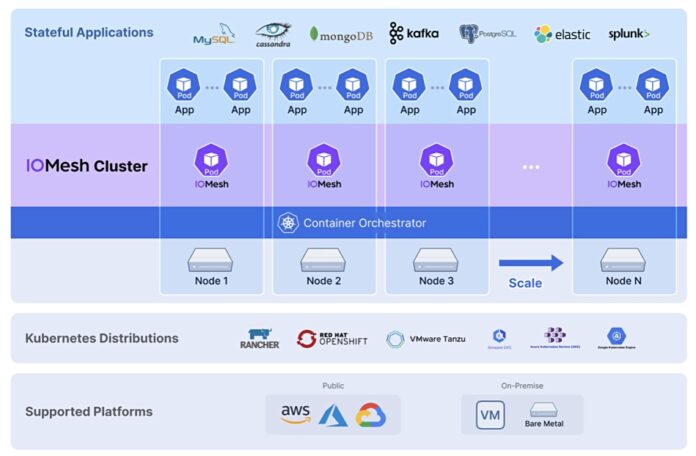SmartX has released 1.0 of its IOMesh Kubernetes-native storage software.
Update. IOMesh is not open-source. 26 June 2023.
Beijing-based SmartX produces both hyperconverged infrastructure (HCI) software and IOMesh containerised storage software for Kubernetes environments. The preview version of IOMesh outperformed Ondat (bought by Akamai), Portworx (bought by Pure Storage) and Robin.io (bought by Rakuten), leaving SmartX as a stand-alone K8S storage software supplier.
A SmartX contact said IOMesh has “superior performance compared to Portworx and other peer products [and] is production-ready with enterprise features.”
IOMesh has gained Red Hat OpenShift certification and has been deployed by Alibaba Cloud and other customers. IOMesh v1.0 is the first commercial edition and complements the community edition by having better aspects of installation, deployment, storage, operations and maintenance. SmartX has offices in Palo Alto and Korea, so you are not limited to dealing with a company with a China-only physical presence.

The software is said to be high-performance and features:
- I/O localization – cross-node data reads can be minimized by storing a data replica on the local node and limiting read I/O operations to this node when possible, resulting in reduced network traffic and higher application performance.
- Cold and hot data tiering – leverage the capacity and performance of different storage media types, maintaining a balance between cost and performance.
- All-flash configuration – get lower latency and I/O variability, resulting in faster and more consistent application performance.
- Local PV – create local PVs (persistent volumes) with block devices, providing better I/O performance than Kubernetes local PVs limited to directories.
High-availability and security functions include:
- Multiple replica policy – place replicas between nodes based on local priority, optimal placement, and capacity balancing principles.
- PV snapshot – take a snapshot of a volume in seconds to save and use historical data at any time.
- Abnormal disk detection and isolation – automatically detect and isolate abnormal disks to reduce impact on system performance and operational burden.
- Secure access – encrypt a PV using a StorageClass configured with Kubernetes Secret. Only users with the appropriate credentials can access the PV.
- Intelligent data recovery – adaptively adjust data recovery or migration speed based on business loads to ensure business I/O.
Users can Install IOMesh Community Edition with a single line of code, and receive a free 30-day trial license upon installation. They can also later request a permanent free license. This installation requires an Intel x86_64 or a Kunpeng AArch64 Kubernetes cluster (3-node minimum). There is an IOMesh community on Slack for updates and community support.
IOMesh’s documentation provides an overview of its capabilities.







